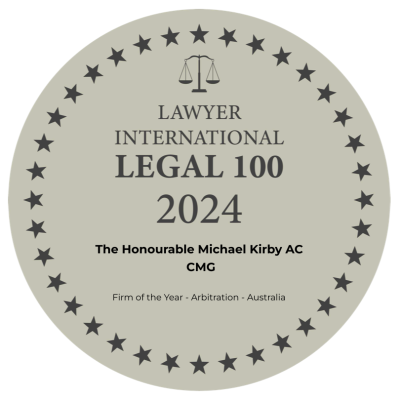
Audio
Michael Kirby speaking to his younger self
Qld Law Society - The Callover podcast
Justice Michael Kirby interviewed by Daniel Connell
Michael Kirby interviewed by Daniel Connell for the Australian response to AIDS oral history project
YARNS. with The Hon Michael Kirby AC CMG - Justice, Country & the Constitution
>> From the first 'pink ban' to the '78 riots: LGBTIQ+ Australians reflect on 50 years of progres
>> Apple Podcast - YARNS. with The Hon Michael Kirby AC CMG - Justice, Country & the Constitution
>> Spotify - YARNS. with The Hon Michael Kirby AC CMG - Justice, Country & the Constitution
Keynote Address - NSW Humanitarian Awards 2025
The address given for the presentation of Humanitarian Awards 2025 by STARTTS (NSW Service for the Treatment and Rehabilitation of Torture and Trauma Survivors) was delivered at Parliament House, Sydney, on Thursday 26 June 2025 in the presence of many participants in STARTTS, from migrant and refugee communities, legal bodies, and medical and healthcare organisations. Michael Kirby had earlier been a Patron of STARTTS. He returned to deliver the opening address of the occasion. In it, he describes a number of cases that came before him when he was a Justice of the High Court of Australia, including Minister for Immigration, Multicultural and Indigenous Affairs v B (2004) 219 CLR 365; and Al-Kateb v Godwin (2004) 219 CLR 562.
SBS 50 Podcasts
>> From the first 'pink ban' to the '78 riots: LGBTIQ+ Australians reflect on 50 years of progres
>> From the first 'pink ban' to the '78 riots: LGBTIQ+ Australians reflect on 50 years of progress
>> Oppressive laws and 100 days of hell: LGBTIQ+ people on 50 years of history
ChatterMatters Podcast with Michael Kirby
- 1 of 9
- next ›



